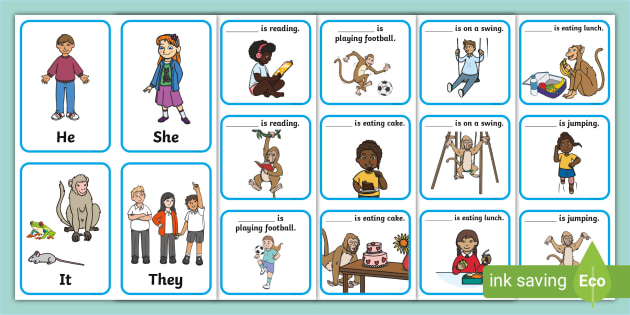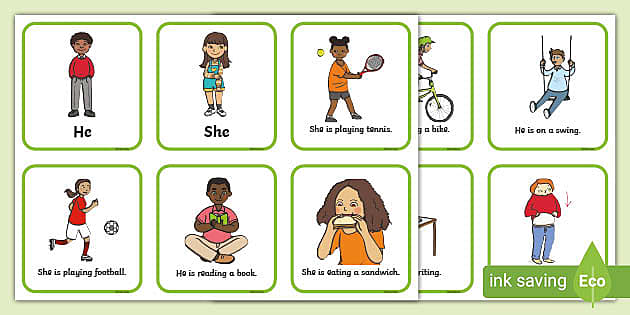The Ultimate Test: How He Treats You When You're Sick
Table of Contents
- The "In Sickness and In Health" Vow: A True Test of Partnership
- Beyond Symptoms: Understanding His Emotional Response
- The Telling Signs of a Truly Supportive Partner
- The Alarming Red Flags: When Care is Absent or Manipulative
- Unmasking the Narcissist: Illness as a Revealing Moment
- The Social Lens: How His Environment Influences His Care
- A Glimpse into the Future: Why This Matters Immensely
- Trusting Your Intuition: What Your Gut Tells You
The "In Sickness and In Health" Vow: A True Test of Partnership
We often hear the phrase "in sickness and in health" during wedding vows, but its true meaning extends far beyond the altar. It’s a daily commitment, a promise of unwavering support that is put to the ultimate test when one partner is vulnerable. Observing a man on **how he treats you when you're sick** or in a bad situation is the key to determining if he truly has your best interests at heart. This isn't just about superficial acts of kindness; it's about the depth of his character and his capacity for genuine care. A relationship built on a strong foundation implies a shared understanding that both partners will be there for each other, especially during times of weakness. When you're unwell, your usual resilience might falter, and your ability to care for yourself diminishes. This is precisely when a loving partner steps up, providing comfort, practical help, and reassurance. It's a moment that can either solidify your bond or expose deep cracks in the relationship's foundation.Beyond Symptoms: Understanding His Emotional Response
When you’re sick, your needs extend beyond just physical remedies. You might feel weak, vulnerable, anxious, or simply drained. The way your partner treats you when you’re sick is not just about addressing your physical symptoms; it’s profoundly about his emotional response to your discomfort and vulnerability. Does he show genuine concern, or does he seem annoyed by the inconvenience? Is he empathetic, or does he dismiss your feelings? Consider "sickness behavior," a coordinated set of adaptive changes that occur in individuals during the course of an infection. It's not just about a cough or a fever; it includes feeling fatigued, withdrawn, irritable, or needing more rest. A truly caring partner understands that these are natural responses to illness, not personal slights or exaggerations. His ability to navigate these emotional shifts with patience and understanding speaks volumes about his emotional maturity and his capacity for unconditional love. If he rolls his eyes or sighs heavily when you express discomfort, dismissing your feelings with phrases like “you’re being dramatic again” or “why do you always make such a big deal out of nothing?”, this dismissal isn’t just frustrating—it’s a calculated way to make you doubt your own feelings, a clear sign of a lack of empathy and respect.The Telling Signs of a Truly Supportive Partner
So, how should your partner care for you when you’re sick? A supportive partner demonstrates care through both tangible actions and intangible emotional support. These actions paint a clear picture of his commitment and love.Practical Care: Actions Speak Louder
A truly caring partner will instinctively step into a caretaker role, making your comfort and recovery their priority. This often involves: * **Taking Charge of Chores:** Without being asked, he might handle cooking, cleaning, or other household tasks that you're usually responsible for. He understands that your energy needs to be conserved for healing. * **Running Errands:** Picking up medicine, groceries, or anything else you might need, ensuring you don't have to exert yourself. * **Ensuring Comfort:** Bringing you blankets, adjusting the thermostat, making sure you have water or tea within reach. * **Monitoring Your Well-being:** Checking your temperature, asking about your symptoms, and genuinely listening to your answers. He might even research your illness to understand it better. * **Facilitating Rest:** Creating a quiet, comfortable environment for you to rest, taking care of children or pets, and minimizing disturbances. These practical acts aren't just helpful; they are tangible expressions of love and responsibility. They show that he is willing to put your needs before his own convenience.Emotional Support: Being Present and Patient
Beyond the practical, emotional support is crucial. This includes: * **Active Listening:** Genuinely listening to your complaints, fears, or discomforts without judgment or interruption. * **Offering Comfort and Reassurance:** Providing words of encouragement, a comforting touch, or simply being physically present. He makes you feel safe and cared for. * **Patience and Understanding:** Recognizing that illness can make you irritable, emotional, or less capable. He remains patient and doesn't take your "sickness behavior" personally. * **Inclusion (when appropriate):** If you're feeling up to it, he'll include you in conversations or activities, even if you're just listening. If the man you’re with treats you well, he’ll not only include you because he knows you want to be included, but because he values your opinions and your input, even when you're not at your best. * **Expressing Empathy:** Showing that he understands and shares your feelings of discomfort or frustration, rather than minimizing them. When he provides both practical and emotional support, it reinforces the feeling that you are truly a team, capable of facing life's challenges together.The Alarming Red Flags: When Care is Absent or Manipulative
Conversely, what does it mean if he doesn't take care of you when you're sick? This can be a deeply unsettling experience and a significant red flag for the health of your relationship. When a partner fails to provide basic care during illness, it reveals a profound lack of empathy and commitment. You might observe behaviors such as: * **Lack of Empathy:** He seems indifferent to your suffering, showing no genuine concern for your well-being. * **Downplaying Severity:** He dismisses your symptoms altogether, suggesting you're "fine" or "overreacting," even when you're clearly unwell. * **Ignoring Needs:** He continues with his routine as if nothing has changed, leaving you to fend for yourself for food, medicine, or comfort. * **Making It About Him:** He might complain about how your illness inconveniences *him*, shifting the focus from your needs to his own frustrations. * **Passive-Aggressive Behavior:** He might do things grudgingly, sighing loudly, or making it clear that he resents having to help. * **Blaming You:** In extreme cases, he might even imply that your illness is your fault, or that you're somehow responsible for his inconvenience. These behaviors are not just unsupportive; they can be emotionally damaging, making you feel isolated, unloved, and questioning your worth in the relationship.Unmasking the Narcissist: Illness as a Revealing Moment
A common complaint among those in difficult personality relationships is how a narcissist treats you when you’re sick. When you’re sick, their behavior often shifts dramatically, revealing a lot about their true nature. You might find yourself wondering if they really care or if it’s all about them. Understanding their patterns can help you navigate these tricky interactions. Narcissists are notoriously horrible when you get sick because they absolutely resent having to accommodate someone else's needs. Their world revolves around them, and your illness is an unwelcome disruption to their supply of attention, admiration, and control.The Self-Centered Shift: When Illness Becomes an Inconvenience to Them
For a narcissist, your illness isn't a call for compassion; it's an inconvenience that directly impacts their "supply." Because if you’re sick, you can’t meet their supply needs. This means you can't shower them with attention, validate their ego, or fulfill their demands. Their behavior will often pivot to reflect this frustration: * **Ignoring or Minimizing:** They might completely ignore your illness or downplay its severity, as if by doing so, it will cease to exist and they won't have to deal with it. * **Shifting Blame:** They might subtly (or overtly) blame you for being sick, implying it's your fault for not taking better care of yourself, or that you're "faking it" for attention. * **Demanding Attention:** Instead of caring for you, they might find ways to make themselves the center of attention, perhaps by complaining about how *they* are suffering because of *your* illness. * **Emotional Withdrawal:** They may become cold, distant, and emotionally unavailable, as your vulnerability doesn't serve their self-serving agenda. This self-centered shift can be incredibly isolating and disheartening, leaving you feeling abandoned when you need support the most.Transactional "Care": The Favor-for-Favor Mentality
Another hallmark of a narcissist's "care" during illness is its transactional nature. Ahh, the good old favor for favor thing. No narcissist is nice without a reason. If they do offer help, it's rarely out of genuine empathy. Instead, it's a calculated move designed to put you in their debt or to gain something in return later. He'll probably bring up how he helped you when you were sick and think he can trade in for a bigger, "out there" favor, despite being nice isn't transactional. This isn't true care; it's a manipulation tactic. Be very wary of him if you notice this pattern. They might perform a small act of kindness, only to later use it as leverage, reminding you of "how much they did for you" and expecting disproportionate reciprocation. This makes any act of kindness feel tainted and conditional, stripping it of genuine warmth and sincerity. Understanding these patterns can help you navigate your feelings and set healthier boundaries.The Social Lens: How His Environment Influences His Care
Sometimes, **how he treats you when you're sick** can also be influenced by his social environment. Observing how his friends and family respond can provide additional context and reveal layers of his character. Does he openly discuss your illness with them, or does he keep it to himself? His willingness to share can indicate how seriously he takes the relationship and how much he values your well-being in the eyes of his social circle. A partner who genuinely cares will likely be open about your condition with close friends and family, seeking their understanding or support for you. This shows he is not ashamed or embarrassed by your vulnerability and sees you as an integral part of his life that he is proud to share. Conversely, if he keeps your illness a secret, or downplays it to others, it could suggest he is more concerned with appearances, or that he views your illness as a personal inconvenience he doesn't want others to know about. This lack of transparency can be a subtle but telling sign of deeper issues within the relationship, hinting at a lack of true commitment or respect.A Glimpse into the Future: Why This Matters Immensely
How a man treats you when you're sick or going through a hard time is a good indicator of the future. This is not merely about a single instance of flu; it’s a preview of how he will handle life’s inevitable hardships. How will he be later in life, when things get really rough? Life is unpredictable. There will be moments of greater vulnerability – pregnancy, childbirth, chronic illness, aging, or serious injury. If he can't care for you when you're sick now, he'll never be able to handle your needs if you get pregnant, or if you get injured, or have diseases as you age. Learning if someone can and will care for you early on is really important to the future of your relationship. A partner's response to your illness is a litmus test for his long-term commitment and capacity for genuine partnership. It reveals whether he sees you as an equal, deserving of care and support, or merely as someone who fulfills his needs. This insight is invaluable, as it helps you assess whether this person is truly equipped to be your lifelong companion, someone who will stand by you "in sickness and in health," through thick and thin.Trusting Your Intuition: What Your Gut Tells You
When evaluating **how he treats you when you're sick**, it's crucial to pay attention to your own feelings and intuition. Sometimes, despite all the logical analysis, your gut feeling tells you something isn't right. Imo, when you're in a relationship if you want the best outcome it's typically the best to just go with your gut anyways. If you're seeking opinions or other viewpoints from objective observers, it's often because a part of you already senses a discrepancy between what you hope for and what you're experiencing. Your intuition is a powerful tool for assessing the health of your relationship. If his actions make you feel dismissed, unloved, or like a burden, those feelings are valid. How a partner cares for you when you’re ill says a lot about what kind of person he is, and what kind of partner he is. Don't ignore these internal signals. They are guiding you toward a deeper understanding of your partner's true character and the sustainability of your shared future. Ultimately, a partner who genuinely cares will show up for you, not just when it’s easy, but especially when you’re at your most vulnerable. This level of care is a cornerstone of a healthy, lasting relationship.In conclusion, the way your partner treats you when you're sick is far more than a minor detail; it's a profound indicator of his character, his empathy, and the true strength of your bond. From providing practical help to offering unwavering emotional support, a caring partner demonstrates his commitment in tangible ways. Conversely, a lack of empathy, dismissive behavior, or the self-serving actions of a narcissist can reveal deep-seated issues that threaten the very foundation of your relationship.
This period of vulnerability serves as a critical test, offering invaluable insights into how he might handle future challenges, from aging to serious life events. By observing his actions and trusting your intuition, you gain clarity on whether he is truly the partner who will stand by you through "sickness and in health." Reflect on your experiences, understand the significance of his actions, and if you find yourself in a relationship where genuine care is absent, consider what steps you need to take to prioritize your well-being and seek the support you deserve. Share your thoughts in the comments below – your experiences can help others navigating similar situations.

Grammar Rules for He/She/They Usage | YourDictionary

She Pronoun

He Pronoun